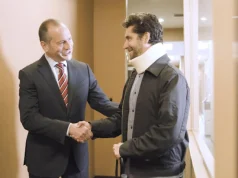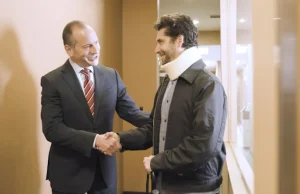We usually say that the client pays the lawyer to be responsible for his (the client’s) problem. The problem leaves the client’s hands, bringing relief, peace, and security that someone capable is looking out for his interests, and goes to the lawyer, who often sleeps thinking about how to resolve each case.
The price is not only the execution of the service (which many customers find simple, but it takes years of study sometimes to be simple), but it represents the transfer of responsibility. In addition, the lawyer becomes civilly responsible, being able to undergo ethical proceedings in the Bar Association and pay compensation if he acts negligently.
The serious lawyer knows all this.
1. Lawyer’s indication is a good source: If your friend liked it, he was treated well (regardless of having been successful in the action).
Nowadays, the internet can be a good source. Suppose you like the site or any article that was written. In that case, you can contact the lawyer or the office and see if you feel safe with the professional in a telephone or personal conversation. A well-known law office such as kenton koszdin law office, for example, can be a reliable choice.
2. The lawyer may or may not charge for the initial consultation: It is an option for each professional, and it does not mean that the lawyer who charges is a mercenary.
Our criterion is: if the consultation is a more technical opinion, with eventual analysis of documents, we will charge. If it’s just a conversation with exposure of legal and extrajudicial options, without going into the details of the case, we for example don’t charge. This is very private, and it is up to the client to decide whether to pay for the consultation.
But it is advisable that: when you pay, it’s best to ask more detailed questions and leave with a good idea of what will happen in court. Paying the consultation, the case analysis deserves to be more in-depth.
3. Getting to know the lawyer: The client will probably keep in contact with the lawyer for many years since the slowness of the Judiciary is an impossible factor. Empathy is essential. A harsh or boorish lawyer is not a good lawyer. Also, the code of ethics provides that the lawyer must treat everyone with respect; acting differently is incompatible with advocacy.
This is different from what happens in practice. The client must, therefore, choose the lawyer with whom he feels comfortable. And he must feel comfortable with those who give due attention:
- Answering questions.
- Returning emails and phone calls.
- Constantly presenting news about the progress of each case under his responsibility, even if it is to say that nothing happened.
A good lawyer is sensitive to the client’s anguish and considers the emotional factor of a claim, such as a kidney disease disability case. Some prefer cold lawyers, understanding that distance brings better quality to the lawyer’s work. I don’t think so, but everything is a matter of opinion!








